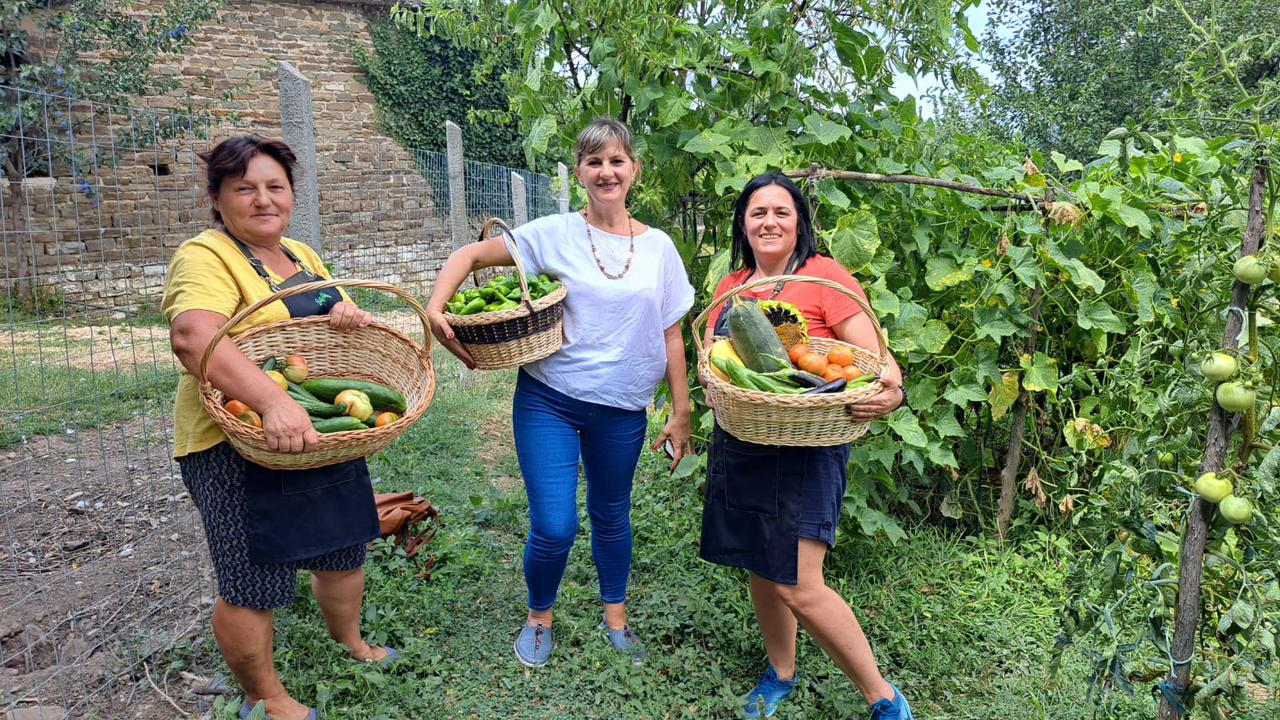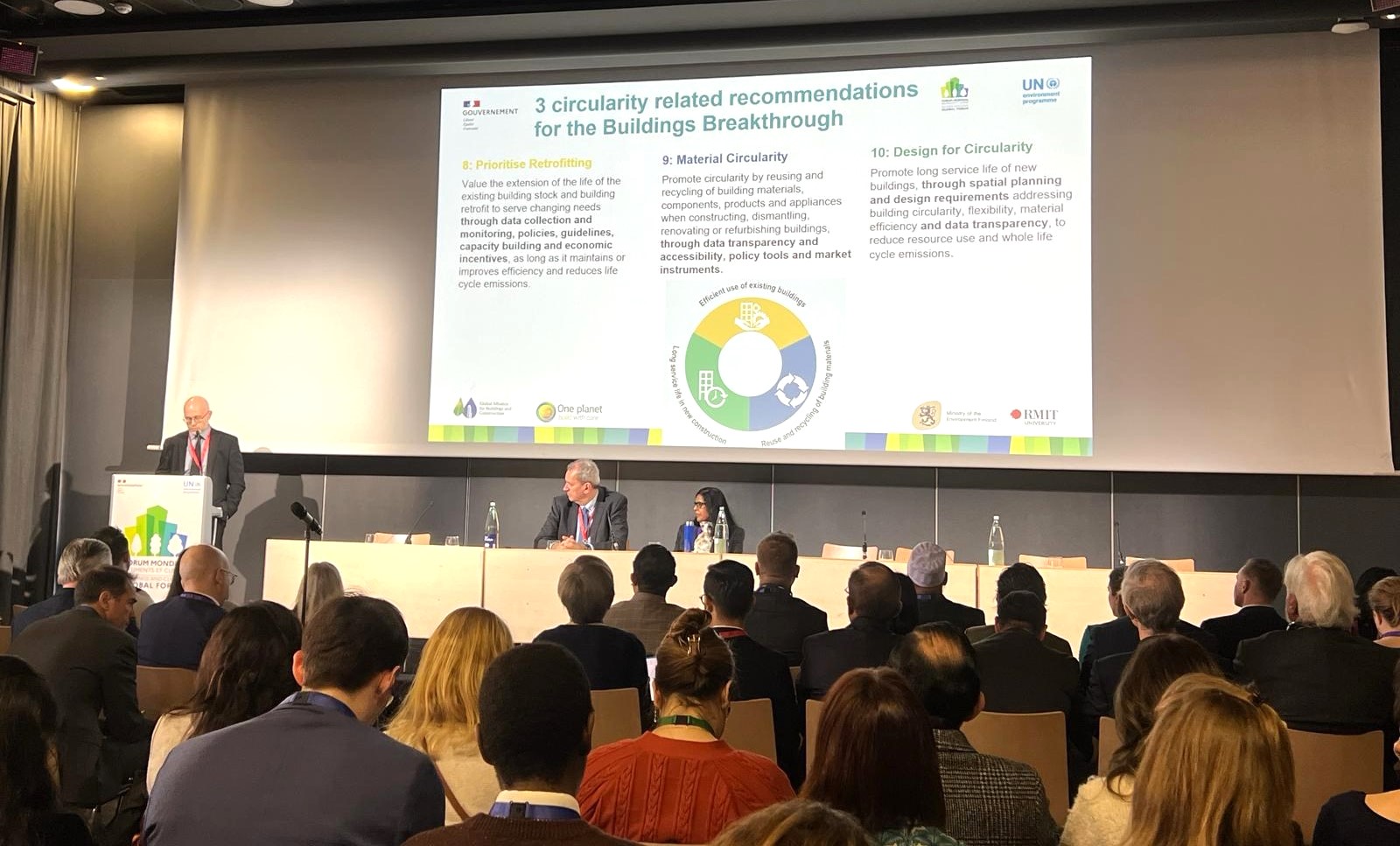Insects as Sustainable Food in Denmark
Insects are internationally recognised as a sustainable option for protein-rich food. Private sector interest and start-up companies specialised in insects have emerged lately in the Nordic. In Denmark, the Danish Technological Institute (DTI) has led active product development since 2013. While addressing the theme holistically, DTI’s focus has been on technological development, insect rearing practices, interaction with government offices, and raising consumer and media awareness.
The objectives for the Insects as Sustainable Food theme are: Technological development of insect-based food products and ingredients; Development of insect rearing practices; Interaction with government offices and the value chain; and Raising consumer and media awareness. Individual projects under the theme aim at one or several of these objectives.
Technological development of insect-based food products and ingredients
Insects are a new source of food in Europe. Hence, in order to produce insect-based foods in commercial scale, both new process technologies and optimisation of known technologies are needed. Most companies bringing insect- based foods to the market are start-ups. For them, cooperation with researchers and knowledge institutions is vital. At the moment, certain whole insects are allowed to be used as food in some countries, but legalisation of insect-based ingredients is yet to come. However, to prepare for the future, research into such ingredients is already carried out.
Development of Insect rearing practices
Insects are also a new type of farm animal in Europe, and new rearing practices must be developed and implemented. To gain momentum, new industrial and automated rearing methods, adapted for the Northern climate, need to be developed for insect production. Some start-up insect farmers have previously farmed other animals such as pigs, and they already have facilities, which now need to be changed in order to be suitable for rearing insects. Others are new to farming, and start rearing insects without any previous background in farming.
Interaction with government offices and the value chain
The EU legislation on novel foods, and its interpretation in individual countries, has affected insect-based food business. Thus, acceptability of insects as a food source in EU countries has required extensive interaction from all parties involved, both within the government, and in the value chain.
Raising consumer and media awareness
In order to increase consumer awareness and acceptance of insect-based foods, it has been important to first gain media interest and exposure. The theme “Insects as sustainable food” covers 10 ongoing or finished projects.
Technological development of insect-based food products and ingredients
Activities in technological development include optimisation of processes and sensory quality of the products as well as research on possible high value components (e.g. fats and proteins) in insects that may be used as functional food ingredients in the future. For example, the drying process of whole meal worms has been optimised to keep the worms intact, ensure highest possible quality, and provide a good shelf-life of mealworms as dried snacks. Another case is juice-like products where development includes working on stability, taste, appearance, and ingredients of the product.
Development of Insect rearing practices
Both laboratory and pilot-scale facilities for insect rearing have been developed to facilitate optimisation of the rearing process. The parameters tested include rearing conditions such as insect density, temperature, and humidity as well as feed composition and impact of these factors on growth, conversion rates, and composition of the insects.
Interaction with government offices and the value chain
There have been many meetings between DTI’s projects and Danish government offices to spread knowledge and acceptance of insect-based foods and finally to get the products on the market. To speed up the process DTI has also assisted in creating a community that interact, which includes knowledge institutions, universities and government offices. This work has aided legal acceptance of insects as food in Denmark by 2015.
Raising consumer and media awareness
Cooperation with media has produced 300 articles in press/TV/internet. Visibility in the media is important for the whole theme of insect-based food, as it creates consumer awareness, acceptability, and interest in the products, which in turn supports the companies’ business. DTI has actively launched press releases and worked to get maximum attention for the use of insects as food and feed. It is also important that consumers feel safe with insect products. Hence all consumer communication must be clear and the products must be correctly labelled indicating their content. Success Factors
The DTI projects have successfully used active communication to affect consumer mindset. When the first projects started in 2013, Danish consumers were hesitant towards insect-based foods. The fact that insect-based food products are now on the shelves of Danish supermarkets is a clear success for the companies producing them, and for the overall theme. In addition, these innovative forerunner companies themselves are internationally a success for Denmark. After all, more sustainable protein choices for consumers should eventually lead to a smaller environmental footprint.
Novelty
The major novelty in the DTI projects is the insects themselves. The whole production system is a new concept in Northern countries, starting from the insects farms. Globally, there is also limited scientific knowledge on industrial scale insect rearing and insect-based food ingredients. DTI has contributed knowledge on how to use insects in food products, processing methods and contributing factors to final product characteristics (e.g. taste, texture). Since 2015, certain whole insects are now classed as food in Denmark, and food products containing whole insects are sold in small specialty stores as well as in larger supermarket chains.
Sustainability Impacts
The main impact of insect-based food on sustainability is reducing the climate impact of protein through substitution - insects instead of beef, pork etc. Insects grow faster and have better conversion rates of feed than many other animal protein sources, and thus have a positive impact on the use of resources. Insects can also feed on certain types of side streams from the food industry, which helps to further reduce climate impacts.
Another main impact has been the guidance of consumers towards understanding that the amount of meat in their diet can be reduced without compromising nutritional value or taste. DTI has promoted this thought at events and seminars, and is monitoring the development through questionnaires. However, there is still some way to go.
Cost-effectiveness
At this early stage it is still difficult to estimate cost-effectiveness aspects, because production is limited. In the future, when economy of scale is achieved, production is expected to become cost-effective. Production of insect-based foods is currently very work-intensive, and one direction in the development is to bring more automation to the production processes. In addition, many technological questions remain to be answered in order to enable production of different new insect-based products. It is expected that production of food ingredients (e.g. cricket oil, mealworm protein or grasshopper fibre) from insects will be legalised in the future. Utilising insects for production of high value food ingredients is a very interesting possibility that will further increase the value.
Challenges and potential for further development
A major challenge in development of insect-based foods is the EU legislation, which is very cautious in respect to the concept of novel foods, i.e. to foods and ingredients that have not been traditionally consumed in Europe. In the Nordic countries, whole insects are approved as food in Denmark and Finland at the moment, and the approval of insect ingredients is expected by 2020. It is possible for companies to apply for a novel food status from the EU, which would then allow them to produce new products. However, a major obstacle is that the companies producing insect-based foods are generally very small, and they do not have resources to pursue the demanding and time-consuming process for the products to be classified as novel foods.
Rearing insects in a considerably colder climate than would be natural to them, can also lead to climate impacts through e.g. heating of the rearing facilities. Quite a lot of work is still needed in order to develop energy efficient insect farms.
Now many products are costly, because the ingredients are produced in small amounts, and hence are expensive. Further development and automation of rearing facilities will speed up the process of making the insects cost-effective.
Contact person(s) for more information:
Anne Louise Dannesboe Nielsen, Mobile 45 72 20 24 55, E-mail aln@teknologisk.dk
External source(s)
Image

Danish Technological Institute
Project start date
01/01/2013
Project end date
01/01/2013

